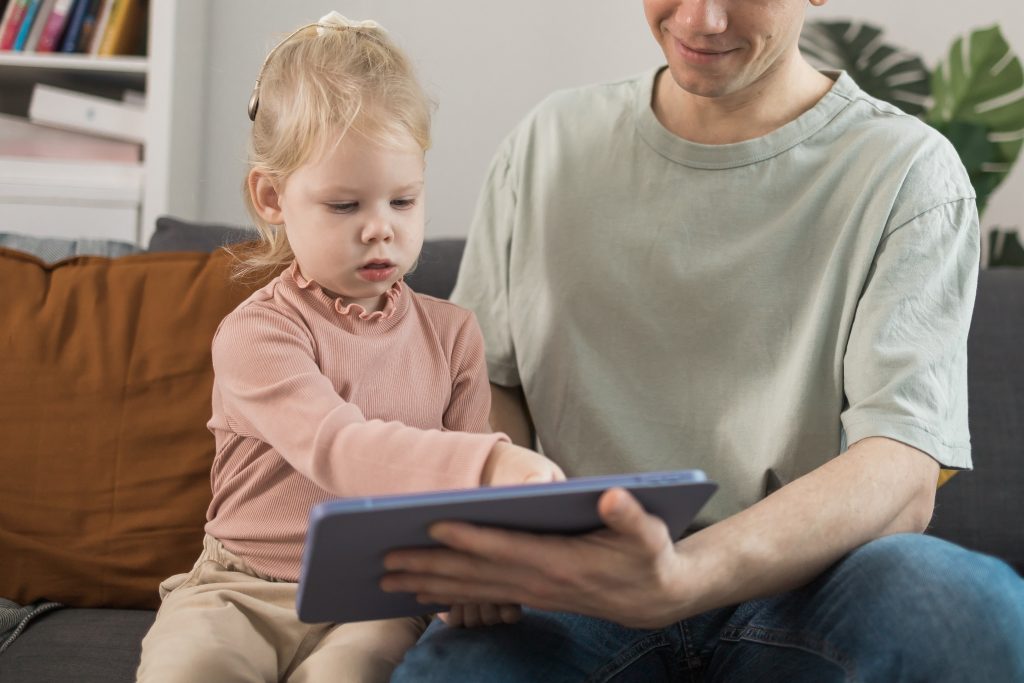Raising a child with hearing loss presents unique challenges and opportunities, requiring a blend of patience, understanding, and unwavering support. In this article, we’ll explore some of the most effective strategies to help your child reach their full hearing potential.
From identifying the early signs of hearing loss to seeking available intervention services, our experts at El Dorado Hearing are demystifying the nuances of parenting a child with hearing impairments.

Understanding the Causes of Hearing Loss in Children
Hearing loss in children can arise from a variety of causes, each necessitating a unique approach to care and intervention. These causes are generally categorized into congenital (present at birth) and acquired (occurring after birth).
Congenital hearing loss may be due to genetic factors, infections during pregnancy, or birth complications. Acquired hearing loss might result from infections like meningitis, repeated ear infections, exposure to loud noise, or even earwax compaction. Understanding these types and their causes is key to helping parents make informed decisions on prevention, early detection, and intervention efforts.
Identifying the Signs of Hearing Impairment in Your Child
Early detection of hearing loss is crucial to maximizing the efficiency of treatment. By seeking evaluation and intervention early on, you can minimize the social and developmental effects and implement the necessary changes to preserve your child’s hearing.
While severe cases of hearing loss are typically recognizable at any age, some cases can be much harder to identify. Depending on your child’s age, take note of some of the most common early symptoms of hearing impairment.
- Lack of Response to Sound: Most infants startle at loud noises, and, by six months, of age, turn towards the source of a sound.
- Delayed Speech Development: Children with hearing loss tend to exhibit slower language development compared to their peers.
- Frequent Inattention: Hearing loss makes it difficult to pay attention, oftentimes presenting itself as ignored requests or instructions.
- High Volume Needs: Children with hearing impairments will often consistently turn up the volume on devices too high.
- Social Isolation: Hearing loss can also present itself through a preference for playing alone, indicating difficulty in communicating with peers.
By recognizing these signs early on, you can actively support your child and seek the necessary intervention to restore clear and confident communication.
Supporting Your Child Through the Challenges of Hearing Loss
Supporting a child with hearing loss extends beyond just auditory help; it involves a multifaceted approach, including social, emotional, and educational development. This support can take many forms, from employing new communication strategies at home to advocating for your child’s needs in the classroom.
By employing the following strategies, you can ensure your child has the necessary support and resources to restore their ability to communicate, learn, and connect with others:
- Seeking the Necessary Evaluation & Treatment
- Implementing New Communication Strategies
- Building a Supportive Environment
Seeking the Necessary Evaluation & Treatment
If you suspect your child suffers from hearing loss, it’s crucial to get a hearing evaluation as soon as possible. This screening will serve as a baseline for any necessary prevention tactics or treatment options, preserving your child’s hearing from further damage. After this, it’s important to schedule regular examinations to identify any subtle changes in your child’s hearing ability.
The results of these evaluations will help you select the optimal treatment option, which may include hearing aids, cochlear implants, or other assistive devices. Early intervention programs may also include speech therapy or mental health resources, designed to provide comprehensive support for your child’s development.
Implementing New Communication Strategies
Effective communication stands at the forefront of your child’s communication and development, making it crucial to promptly address any impairments in hearing. This could involve learning and using sign language, adopting clearer speech techniques, or making environmental adjustments to reduce background noise.
These strategies require commitment and adaptability from the entire family but are essential for fostering your child’s development.
Building a Supportive Environment for your Child
Creating a supportive environment entails much more than just physical and communicative adaptations. Hearing loss, when untreated, often isolates children from social activities due to difficulty communicating.
After seeking evaluation and treatment, the communication issue is generally resolved, but that doesn’t mean the social and emotional challenges disappear. To overcome these difficulties, encourage your child to get involved in extracurricular activities or seek emotional support therapy to restore their confidence in communication.
Exploring the Available Treatment for Children with Hearing Loss
With modern technology, your child can still engage with the world around them to their fullest potential. Treatment options vary widely, depending on the type and severity of hearing loss, but they share a common goal: to promote effective communication. These options include hearing aids, cochlear implants, assistive listening devices, and more.
To determine which option is best for your child, get in touch with an audiologist today. At El Dorado Hearing, we are dedicated to guiding families through the complexities of childhood hearing loss with empathy, expertise, and the latest hearing health solutions. To get started on your child’s journey to clear communication, take a quick quiz or give us a call at 520-278-5139.




Leave a Reply